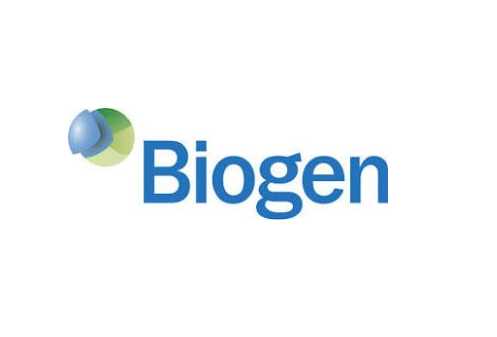Key trust holding Biogen claims rare Alzheimer’s trial success
Trust favourite Biogen saw its stock rise by 20% on Friday, after reporting a surprise apparently positive result from a Phase II study with the anti-amyloid beta protofibril antibody BAN-2401 in the notoriously tough indication of Alzheimer’s disease. However, the share price boost to Biogen probably reflects the implied support the result gives to the so-called amyloid hypothesis – on which Biogen’s more advanced Alzheimer’s programme aducanumab, a beta amyloid antibody, is based – rather the new potential for BAN-2401 itself.
The share price boost is nevertheless important for many of the biotech specialist investment trusts that hold the stock. In particular, it will boost the value of Biotech Growth Trust (BIOG), which has Biogen as its largest holding accounting for 11.7% of its NAV.
Biogen and Eisai – which effectively have a risk sharing joint venture on BAN-2401 and elenbecestat, another Alzheimer’s drug – announced that the 856-patient “Study 201” (NCT01767311) showed statistical significance for the highest dose tested of BAN2401. The study’s primary endpoint was slowing progression, as measured by the Alzheimer’s Disease Composite Score (ADCOMS) and reduction of amyloid accumulated in the brain, as measured using amyloid-PET (positron emission tomography).
The result was something of a surprise given in December 2017, the study was reported to have failed to meet criteria for success at 12 months, albeit using Bayesian analysis (a novel statistical approach). At 18 months, however, efficacy was evaluated by using conventional statistical methods on ADCOMS, which combines items from the Alzheimer’s Disease Assessment Scale-cognitive subscale (ADAS-Cog), the Clinical Dementia Rating Sum of Boxes (CDR-SB) scale and the Mini-Mental State Examination (MMSE) to enable sensitive detection of changes in early AD symptoms. The highest treatment dose of BAN2401 began to show statistically significant clinical benefit as measured by ADCOMS as early as six months including at 12 months using these methods.
The study enrolled patients with mild cognitive impairment due to Alzheimer’s disease or mild Alzheimer’s dementia with confirmed amyloid pathology in the brain and treated patients were randomised to five dose regimens, 2.5 mg/kg biweekly, 5 mg/kg monthly, 5 mg/kg biweekly, 10 mg/kg monthly and 10 mg/kg biweekly, or placebo. The Bayesian approach allows an adaptive design so that more patients are recruited to the dose(s) that show the greatest effect.
The result poses a question when and whether Biogen (Nasdaq: BIIB), as well as its Japanese partner Eisai, will commit to Phase III trial(s) of the product, given it has already running one of the most expensive phase III programmes in drug development history in Alzheimer’s. It has two large Phase III trials underway with aducanumab that are due to render results in late 2019 and early 2020 and two Phase III trials, jointly funded with Eisai, for elenbecestat.
Reently, a number of competing programmes for molecules with the same mechanism as elenbecestat failed in Phase III, but in June Biogen and Eisai reported a positive result in a phase II study.
